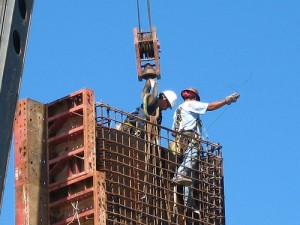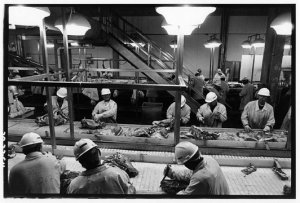The youngest of us, he came to America when he was two. I was twelve at the time, and I was in charge of holding his hand while he walked into the country. He threw a fit at the border station for some unknown reason, and I had to drag him into America kicking and screaming, quite literally.
He is the son of Aunt #2, and as such was orphaned before he could form concrete memories of his parents. My mother adopted him, so my cousin became my brother.
As a child, he fluctuated between precocious awareness of his high intelligence and traumatizing flashbacks of the harrowing start to his life.
A week after he arrived, he ran into my room screeching in fear. “Las bombas! Las bombas!” he screamed as he grabbed me. The problem, my mother explained to me, was that he had heard a plane go over our house. He associated that sound with the imminent dropping of bombs.
Cousin #7 soon adjusted to life in America, however, and his ability to conjure adventure out of the most mundane setting quickly became apparent. On his second day of kindergarten, he came home topless. When my mother asked him what happened to his shirt, he said he didn’t know. For reasons never explained or even grasped at, he had literally lost his shirt, and it never reappeared.
On the way to midnight mass one Christmas Eve, he broke away from us and climbed the snowplowed mountain in front of the church. He was already at the top of the hill and forming snowballs when my mother caught up to him.
“Malcriado!” she said. “Come down, now!”
He had created a formidable arsenal and was sizing up potential targets when she yelled at him, and with great hesitation, he slid down the hill and left his trove of snowballs behind.
As a teenager, he developed an almost psychotic work ethic. One summer, he worked an import-export tent at my hometown’s weeks-long festival. While virtually every adolescent showed up at the festival grounds to dance to cover bands and drink until throwing up, Cousin #7 was handling merchandise and lifting boxes and making change. His calm tone and laidback smile made people trust him, and they usually bought more than they had planned. Many innocent Midwesterners left the tent with a leather wallet from Bogotá or a stuffed lizard from Tegucigalpa or a set of maracas from Caracas. He is just that charming.
Years later, he did me the favor of becoming one of the groomsmen at my wedding. But unfortunately, I haven’t seen him in years.
This is because he is the only one of the cousins to return to El Salvador. The reasons that Cousin #7 lives there are too complex and outright baffling to cover in a single post.
Suffice to say that he has married a local girl and now has an adorable son and daughter. The girl, in particular, looks just like he did as a toddler. I don’t know if she or her brother are prone to the grand schemes and misadventures of their father, but I wouldn’t be surprised if they are.
In any case, I hope to visit them soon. It will be good to see my brother again.







